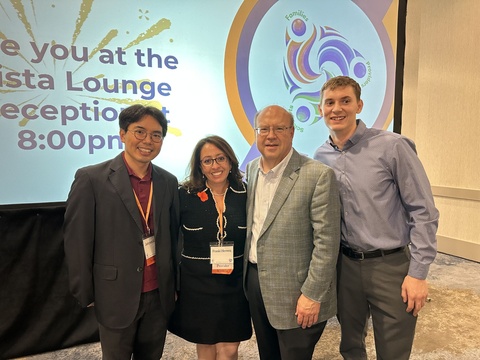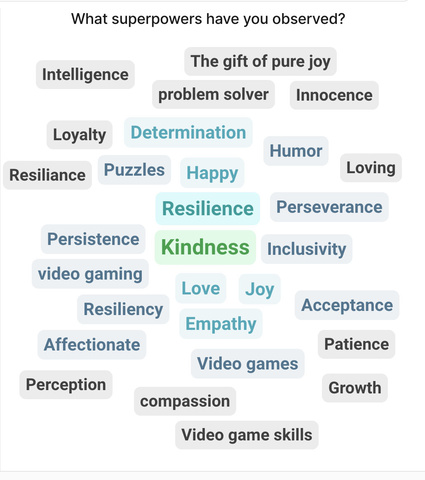As a fundamental researcher, I often feel distant from the people who could be affected by my work. I’ve been studying a mouse model with a deletion in the 16p11.2 region for more than 10 years, but until this month, I’d never met a person with a 16p11.2 deletion.

After attending the first conference hosted by the 16p11.2 Genetic Foundation earlier this month, I can honestly say I am a different scientist. That’s how profound the impact was.
Before I traveled to Anaheim for the conference, I talked to some colleagues whose clinical work has connected them with families touched by their research. Their advice was simple: the families are the experts. We need to listen.
On one level, I already knew this, as the father of an adult son with autism. But it was brought home to me so clearly when I met the 40 families at the conference and listened to them speak about their journeys. These families welcomed me into their community as another person seeking answers. Spending time together sharing our experiences and knowledge helped us to build connection through mutual trust.
They’re all determined to make a difference for their kids, one day at a time, one doctor, one speech therapist, one physical therapist at a time. We are one of the labs that has done the most work in the mouse model and still, as of today, our findings have not resulted in actual treatments. We know more than we did, but not enough to help.
Individuals with a deletion in the 16p11.2 region present with developmental delays, intellectual disability, ADHD, and speech disorders, including childhood apraxia of speech. Meeting with the families brought home to me: they are hoping for and advocating for therapeutic approaches, and they also know their affected family members have superpowers, which they celebrate.
Ben Kelvington and Jaekyoon Kim are integral to the work my lab has done in this area and attended the meeting with me. (We are pictured above with Faranak F. Herrera, DO, the meeting organizer.) Our takeaway: this work matters. We now know in a concrete way who will benefit from what we learn and how deeply it could impact their daily lives. A teenager could sleep better. A young child could have more consistent speech. Parents who have been told over and over about limitations could be vindicated in their refusal to take No for an answer.
With Ben’s encouragement, I tried a new-to-me tool, called Slido, in my presentation. I was excited about how this audience engagement tool changed my talk, enabling me to incorporate wisdom from the true experts. Slido integrates seamlessly with PowerPoint and allows you to create a poll that the audience can respond to in real time. Their answers are anonymous and appear on the screen as they are submitted in a word cloud format that highlights when more than one person supplies the same answer.

At the end of my talk, I asked the audience what superpowers they had observed in their affected family members. I wish I had a video of all these words being added to the screen one at a time and watching Kindness and Resilience light up. The emotion swept over me in a way I wasn’t quite prepared for. It was completely overwhelming. Dr. Herrera later said that it wasn’t just me—“there wasn’t a dry eye in the entire audience when that slide was up.”
I’m returning to this moment often for continued inspiration and motivation. I hope all of you will remain open to and seek connection with the true experts in your areas. Our superpower can be to listen.
Ted
October 2025